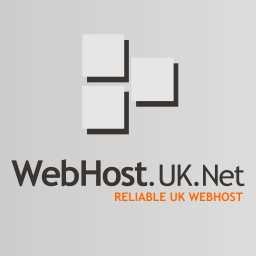Description

GoDaddy

iPage
Comprehensive Overview: GoDaddy vs iPage
GoDaddy
a) Primary Functions and Target Markets
GoDaddy is a comprehensive internet domain registrar and web hosting company. Its primary functions include:
- Domain Registration: GoDaddy is one of the largest domain registrars, offering various domain extensions.
- Web Hosting: Offers shared, VPS, dedicated, and WordPress hosting plans.
- Website Builder: Aimed at users who want to create websites without coding skills.
- SSL Certifications and Site Security: Provides security products such as SSL certificates and website protection.
- Email and Productivity Tools: Offers professional email services and Microsoft 365 solutions.
- Digital Marketing Services: Includes SEO, social media, and email marketing tools.
Target Market: GoDaddy targets a broad range of users, from individual entrepreneurs and small businesses to larger enterprises needing robust hosting solutions. Its easy-to-use tools make it particularly appealing to small business owners and non-technical users.
b) Market Share and User Base
GoDaddy holds a significant share of the web hosting and domain registration market. It boasts over 20 million customers worldwide with over 82 million domain names under management. It's a recognized leader in domain registrations and hosting, given its years of service and extensive marketing efforts.
c) Key Differentiating Factors
- Brand Recognition and Customer Base: As one of the largest service providers, it benefits from a vast and diverse user base.
- Extensive Service Offerings: GoDaddy offers a full spectrum of services, which can be convenient for businesses looking for a one-stop-shop solution.
- 24/7 Customer Support: Offers various customer service channels, including phone and live chat.
- Aggressive Marketing: Often runs promotions and discounts, making it an attractive option for new customers.
iPage
a) Primary Functions and Target Markets
iPage focuses primarily on web hosting services, including:
- Shared Hosting: Its core offering, providing cost-effective hosting solutions.
- WordPress Hosting: Optimized plans specifically for WordPress sites.
- Website Builder: Drag-and-drop website building tools aimed at beginners.
- Security Features: Offers a suite of security tools, including SiteLock and daily malware scanning.
- E-commerce Solutions: Provides tools to build and manage online stores.
Target Market: iPage primarily targets budget-conscious individuals, small businesses, and startups seeking affordable hosting solutions with straightforward setups.
b) Market Share and User Base
Although not as large as GoDaddy, iPage serves a significant number of users with a strong emphasis on affordability and user-friendly services. It has been a part of the hosting industry for many years and is backed by the Endurance International Group, now Newfold Digital, which manages a large portfolio of hosting brands.
c) Key Differentiating Factors
- Affordability: Known for competitive pricing, particularly attractive for small businesses and personal websites.
- Simple Hosting Solutions: Emphasizes ease of use with a straightforward, no-frills hosting approach.
- Free Website Building Tools: Offers tools that cater specifically to beginners without web design experience.
- Renewable Energy Initiatives: Claims to power its data centers and web servers with 100% renewable energy, appealing to environmentally conscious users.
Comparison Summary
- Target Audience: GoDaddy caters to a broader audience with comprehensive services, whereas iPage focuses on affordable, simple solutions primarily for small businesses and personal websites.
- Market Size: GoDaddy far surpasses iPage in terms of overall market share and user base, maintaining a leading position in domain registrations and web hosting.
- Service Offerings: GoDaddy offers a wider array of services, from domain registration to digital marketing tools, compared to iPage’s focus on cost-effective hosting and website building.
- Pricing and Affordability: iPage is generally more affordable, which is a significant draw for budget-conscious users, whereas GoDaddy markets itself through diverse offerings and extensive support.
Both companies serve essential roles in web hosting and domain registration, with their own strengths tailored to different user needs and preferences.
Contact Info

Year founded :
1997
Not Available
Not Available
United States
Not Available

Year founded :
1998
Not Available
Not Available
United States
Not Available
Feature Similarity Breakdown: GoDaddy, iPage
When comparing GoDaddy and iPage, both are popular web hosting providers that offer a range of services designed for individuals and businesses looking to establish an online presence. Here's a breakdown of their feature similarities and differences:
a) Core Features in Common
-
Domain Registration: Both GoDaddy and iPage offer domain registration services, allowing users to purchase and manage domain names.
-
Web Hosting: They provide various hosting plans including shared, VPS, and dedicated hosting options to cater to a variety of website needs.
-
Website Builder Tools: Both companies offer website building tools for users who prefer a more DIY approach to creating their websites.
-
Email Hosting: Email hosting services are available from both providers, often included in their hosting plans.
-
24/7 Customer Support: Each company offers around-the-clock customer support through various channels, including phone, chat, and email.
-
E-commerce Features: They include e-commerce capabilities, allowing users to set up online stores.
-
Security Features: Basic security features like SSL certificates and DDoS protection are available through both GoDaddy and iPage.
-
Money-Back Guarantee: Both companies provide a 30-day money-back guarantee, allowing users to try their services with minimal risk.
b) User Interface Comparison
-
GoDaddy: GoDaddy is known for its user-friendly interface with a modern and intuitive design. It offers a streamlined dashboard that makes managing domains and hosting services relatively easy for users, even those with little technical knowledge.
-
iPage: iPage's interface is straightforward and simpler but might seem a bit outdated for some users compared to competitors like GoDaddy. However, it provides a clean and functional user experience that's quite accessible for beginners focusing on basic functionality rather than modern design aesthetics.
c) Unique Features
-
GoDaddy:
- Extensive SEO Tools: Known for its comprehensive SEO services which help users improve their site visibility on search engines.
- Advanced Marketing Services: Provides more developed marketing tools like GoDaddy Social to help businesses manage their social media.
- Mobile App Management: GoDaddy has a strong mobile app for managing hosting, domains, and tools directly from a smartphone.
-
iPage:
- Free Website Builder: Offers a relatively generous allocation of features in its free website builder compared to some other services.
- Green Hosting: iPage markets itself as an eco-friendly host since it offsets its energy use with renewable energy credits.
Overall, while both GoDaddy and iPage provide most of the essential features needed for web hosting and domain registration, GoDaddy has a slight edge in terms of advanced marketing and mobile capabilities, whereas iPage appeals to more budget-conscious users and those interested in eco-friendly initiatives.
Features

E-commerce Solutions
Customer Support
Website Hosting & Management
Domain Services
Online Marketing Tools

Marketing Tools
User-Friendly Website Building
Reliable Web Hosting
E-commerce Solutions
Domain Services
Best Fit Use Cases: GoDaddy, iPage
GoDaddy and iPage are both well-known web hosting and domain registration companies, but each has its strengths and ideal use cases. Here's a breakdown of where each might be the best fit:
a) GoDaddy
Types of Businesses or Projects:
-
Small to Medium Businesses (SMBs):
- Branding and Domain Focused: GoDaddy is particularly strong in domain name registration, making it an ideal choice for businesses that are brand-conscious and prioritize securing the perfect domain.
- E-commerce and Online Stores: With robust e-commerce solutions, GoDaddy can effectively support online retail businesses looking to establish a strong digital presence.
-
Startups:
- Quick Launch Needs: Startups needing to get online quickly might find GoDaddy's website builder and integrated marketing tools beneficial for a fast deployment.
- Scalability: As startups grow, GoDaddy provides a range of hosting solutions that can scale, from shared hosting to dedicated servers.
-
Service-Based Businesses:
- Local and Global Reach: GoDaddy's SEO tools and local business listings are advantageous for service providers seeking to enhance both local and global visibility.
Catering to Different Industry Verticals or Company Sizes:
- Versatility Across Industries: GoDaddy's extensive range of services—from domain registration to web hosting and site-building—caters to industries such as retail, real estate, professional services, and personal brands.
- Enterprise and Larger Companies: While traditionally focusing on SMBs, GoDaddy has expanded to offer more enterprise-level solutions, providing custom support and advanced security features.
b) iPage
Scenarios for Preferred Use:
-
Budget-Conscious Entrepreneurs:
- Affordable Solutions: iPage is known for its cost-effective hosting plans, making it a preferred option for small business owners, freelancers, and personal projects with tight budgets.
-
Simple, Low-Traffic Websites:
- Basic Online Presence: It's suitable for individuals or companies that need a simple website without the need for extensive features or high traffic handling, such as blogs or portfolio sites.
-
Non-Technical Users:
- Ease of Use: iPage offers a user-friendly experience and straightforward setup process, which is attractive to non-technical users and beginners who want to get online quickly and easily.
Catering to Different Industry Verticals or Company Sizes:
- Small Businesses and Individuals: iPage primarily targets small businesses and individual users, providing easy-to-use tools and reliable service for those who want to maintain a basic web presence.
- Limited Industry Focus: iPage's offering is more generic but effective for basic industry needs, including personal blogging, local shops, or informational websites in various sectors like education or non-profits.
Conclusion
- GoDaddy is a better choice for businesses that require comprehensive online solutions, including branding-focused domain services, scalable hosting, and e-commerce platforms, catering to both small businesses and larger enterprises.
- iPage appeals to those who seek affordable hosting options for simpler websites, making it ideal for individuals and small businesses starting out or those with limited technical expertise.
Both providers offer differing solutions based on business size, technical requirements, and budget, allowing businesses to choose a service that best aligns with their specific needs and growth plans.
Pricing

Pricing Not Available

Pricing Not Available
Metrics History
Metrics History
Comparing undefined across companies
Conclusion & Final Verdict: GoDaddy vs iPage
To provide a conclusion and final verdict for GoDaddy and iPage, it's important to evaluate both hosting services based on several criteria, including pricing, performance, features, customer support, and user experience. Here's a detailed breakdown:
a) Best Overall Value
iPage often offers a more budget-friendly hosting option, especially for those looking to start with basic, low-cost web hosting. The all-inclusive plans can be attractive for users who prioritize affordability and simplicity over high-end performance and advanced features.
GoDaddy, on the other hand, tends to serve a broader variety of needs, appealing to users who may benefit from a wider array of services, including domain registration, professional email, and a more robust infrastructure for scalability.
Conclusion: If affordability and straightforward basic hosting are your primary considerations, iPage may offer the best value. However, for a wider array of services and potential scalability, GoDaddy might be considered the better investment.
b) Pros and Cons
GoDaddy
Pros:
- Comprehensive service offerings, including domain name registration, hosting, email, and marketing tools.
- Extensive support options and large user community.
- Scalable hosting plans suitable for growing businesses.
- User-friendly interfaces with a range of tools available to enhance website functionality.
Cons:
- Add-on costs can accumulate, making it more expensive.
- Renewal fees can significantly increase after the initial term.
- Some users report customer service inconsistencies.
iPage
Pros:
- Competitive pricing, especially for initial hosting terms with steep discounts.
- Simple, all-inclusive shared hosting plans.
- Environmentally friendly hosting practices.
- User-friendly website builder for those with limited technical expertise.
Cons:
- Limited advanced features and less flexibility in hosting options.
- Performance metrics, such as speed and uptime, might not be as robust as competitors.
- Fewer options for advanced users needing high-performance or customized server environments.
c) Recommendations
For Beginners or Budget-Conscious Users:
- iPage is recommended for users who are just starting and want an easy, low-cost entry into web hosting without the need for complex features. The straightforward pricing and bundled features can be ideal for personal sites or small businesses with limited needs and budgets.
For Businesses or Advanced Users:
- GoDaddy would be better suited for those who anticipate growth or need a broader suite of services. Its scalability, additional tools, and comprehensive support can be beneficial for businesses planning to expand their online presence.
Final Recommendation:
- While both platforms have their merits, the choice between GoDaddy and iPage should be based on the specific needs and growth expectations of the user. Users should consider conducting a more detailed needs assessment—considering things like expected traffic, required features, and budget constraints—before making a final decision. Additionally, potential users should be mindful of promotional pricing and renewal rates, as these can significantly impact long-term cost-effectiveness.




